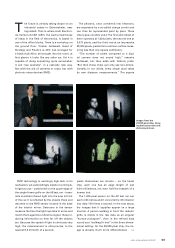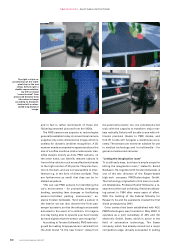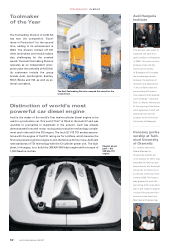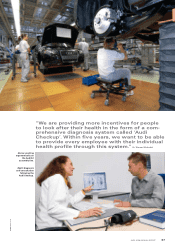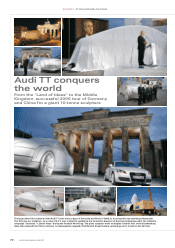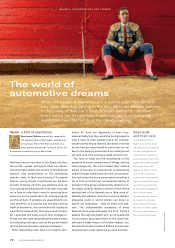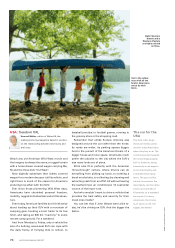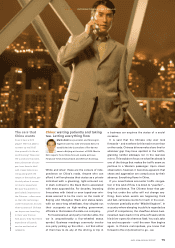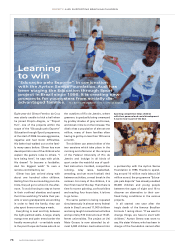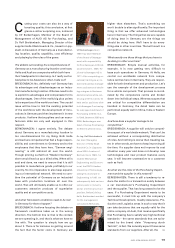Audi 2006 Annual Report Download - page 71
Download and view the complete annual report
Please find page 71 of the 2006 Audi annual report below. You can navigate through the pages in the report by either clicking on the pages listed below, or by using the keyword search tool below to find specific information within the annual report.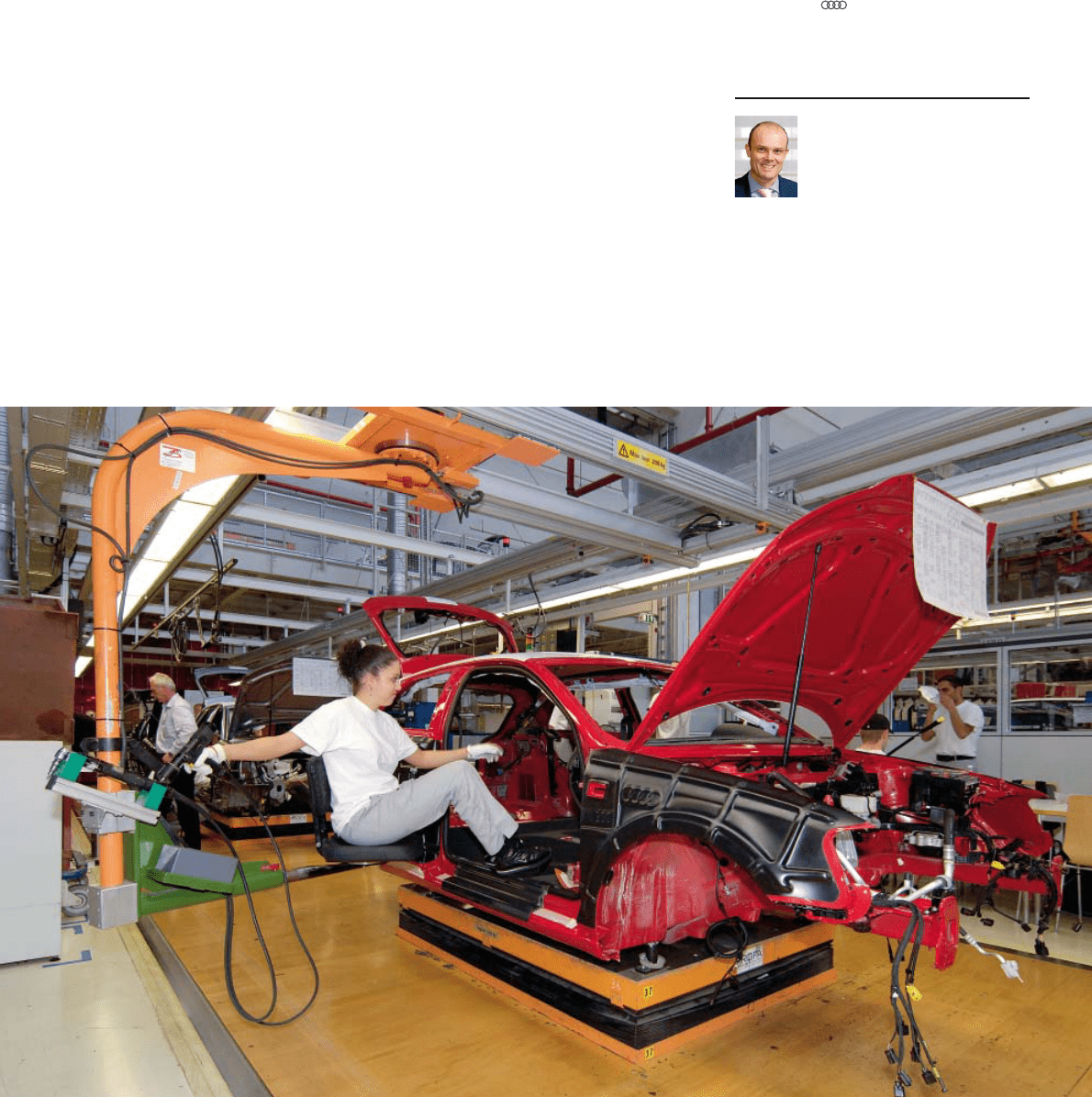
Dr. Nico Fickinger is the Economics
Correspondent of the Frankfurter
Allgemeine Zeitung in Berlin
(parliamentary editorial team) and
responsible for Human Resources, Wage Policy
and the Unions, Environmental Policy and
General Economic Policy. He is a member of
the Board of Trustees of the Randstad
Foundation, Eschborn, and has been on the
teaching staff of the Berlin School of
Economics since 2006.
Audi A3 assembly line:
pivoting assembly-line seat.
contribute towards financing the
arrangements. Although we can provide
some financial support as a company,
we cannot compensate for the complete
absence of public financing. Otherwise
we would no longer have any leeway on
other equally important issues of per-
sonnel policy. The second question will
be how we can organise particular
working areas above all in production.
In this instance, we need to slow down
the pace of work and introduce short
breaks for recuperation. But that means
that we are facing increased investment
outlay and are consciously accepting a
fall in productivity.
How can you compensate for such
losses?
WIDUCKEL: If we are not going to start
cutting pay, then we have to look at
working hours. It may be that less inten-
sive work, spread over a longer working
week, is more tolerable than a tightly
scheduled 35-hour week. That too repre-
sents a paradigm shift. Until now, the
mantra has been that a shorter working
week safeguards employment. I am now
saying that longer working weeks can
also safeguard employment. In addition
to these aspects, we need to rethink
qualifications. How might we organise
models for life-long learning? That is
where we will need to reach agreement
on qualification times.
So is it time to redefine companies’
social responsibility as “helping people
to help themselves”?
MORSCHHÄUSER: I find the notion of
“helping people to help themselves”
misleading because it assumes that
ultimately only one party is able to
shoulder the burden of demographic
change. The responsibility is actually a
shared one. Employees can only take
the initiative and actively pursue further
training if appropriate qualifications
and development options are available
to them. Conversely, job rotation con-
cepts and new approaches to human re-
sources development, for instance, can
only work if the employees are willing to
learn new things and change activities.
In other words, personnel development
and organisation development must be
dovetailed.
WIDUCKEL: We need to give people an
awareness that they can do some-
thing themselves about their health and
their ability to perform. We need to give
older people the sense that they are
needed and have something to con-
tribute. And we have to reward their
efforts. We will then have made the nec-
essary link between personnel develop-
ment and entrepreneurial success to
remain an attractive employer in the
long term.


